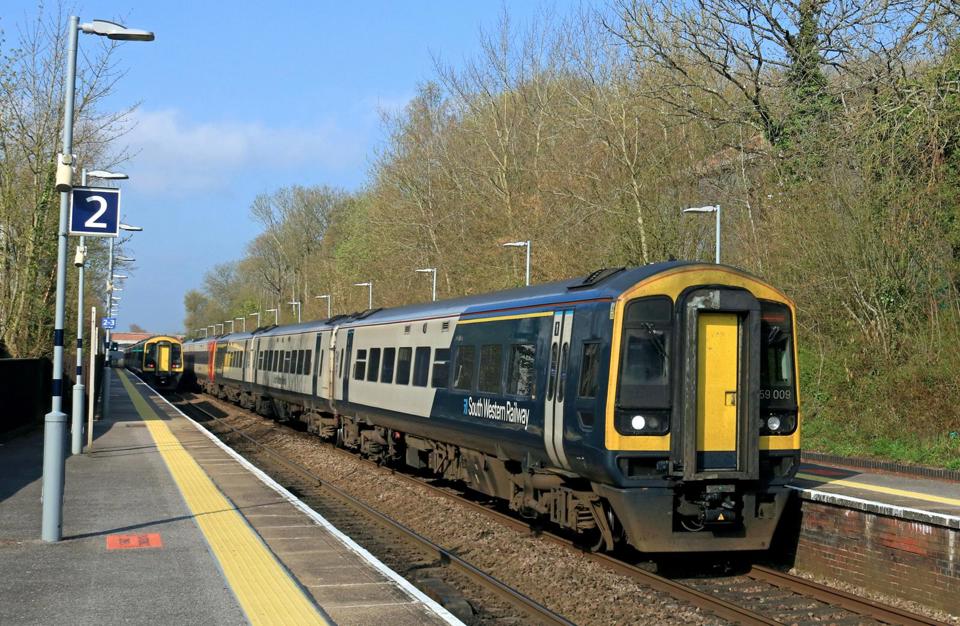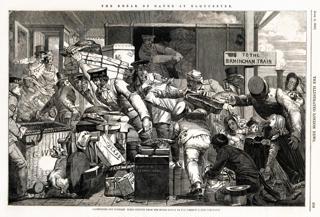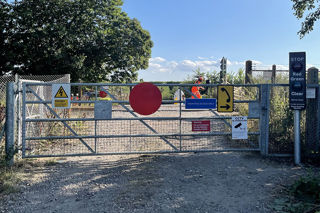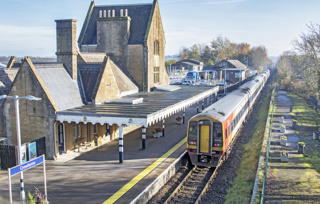South Western Railway services between London Waterloo and Exeter will be reduced to one every two hours until further notice. Journeys will also take one hour longer than normal. The West of England line emergency timetable will come into effect from Monday 11 August. The changes, predicted in RAIL two weeks ago, are due to exceptionally low rainfall, which has caused clay embankments to shrink on long sections of single track west of Salisbury.
This means the track becomes uneven, as the shrinkage is not consistent. To maintain safety, trains will run at no more than 40 miles an hour, instead of the normal line speed of 85 miles an hour.
South Western Railway services between London Waterloo and Exeter will be reduced to one every two hours until further notice. Journeys will also take one hour longer than normal. The West of England line emergency timetable will come into effect from Monday 11 August. The changes, predicted in RAIL two weeks ago, are due to exceptionally low rainfall, which has caused clay embankments to shrink on long sections of single track west of Salisbury.
This means the track becomes uneven, as the shrinkage is not consistent. To maintain safety, trains will run at no more than 40 miles an hour, instead of the normal line speed of 85 miles an hour.
The timetable is likely to remain in place until a prolonged period of rainfall re-establishes normal ground conditions, after which track repairs can be made. An hourly service between London and Yeovil will continue, but trains will take 25 minutes longer than normal. The amended timetable will see services to Crewkerne station restored. Since 28 July, no trains have stopped at the Somerset station, in an attempt to maintain the timetable. A stop added four minutes to train running times. Buses have replaced trains to Yeovil and Axminster.
According to the Met Office in Exeter, the spring of 2025 was the warmest and sunniest since 1910, with the lowest rainfall since 1976. In a joint statement, Network Rail and South Western Railway said the continuing dry weather has removed further moisture from the clay embankments between Gillingham and Axminster.
With 12 miles of severe speed restrictions, trains are unable to reach the small number of passing places, such as at Gillingham station, on time. This makes an hourly service on the route impossible. Network Rail told RAIL in July that repairs such as tamping the ballast during the summer would last for only a few days, as the ground continues to move. It said restoring track levels would only be viable later in the year.
Tom Desmond, operations director for Network Rail Wessex, said: “The safety of our customers is our number one priority, which is why we must impose these speed restrictions.
“Following a comprehensive analysis of ground and track conditions, we know that we must make changes in the next two weeks."
Stuart Meek, SWR’s chief operating officer, said: “We have not taken this decision lightly and we recognise the impact that it will have on customers west of Yeovil in particular.
“However, to continue operating a safe and reliable service, we have no alternative but to introduce a reduced timetable.”
The last time a similar timetable ran was in 2022. Network Rail told RAIL that the soil moisture deficit in July 2025 was 80% worse than three years ago. Moisture content in the clay is at the lowest level since records started in 2009. Engineers have been conducting daily cab-riding inspections in recent weeks, and found evidence of “clay collapse.”
Across southern England, Network Rail has 6,000 clay embankments. In an earlier study, it found that making all of them more resilient to a changing climate would cost £20-£30 billion, a sum the railway would never be able to afford. The implication is that timetable disruption due to changing weather patterns is likely to increase.
Login to continue reading
Or register with RAIL to keep up-to-date with the latest news, insight and opinion.



















Login to comment
Comments
No comments have been made yet.